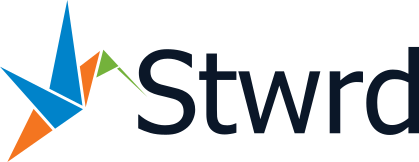Fostering Natural Mutualism in Markets
The global market economy is society’s most effective means for allocating resources. Through production, consumption, and investment activity, it is the purest expression of our collective intent. However, markets are an indifferent instrument and their capacity to engender a healthy society is contingent upon the information underpinning decisions. The fostering of efficient and sustainable markets requires a dynamic and frictionless interchange of information so that capital allocation decisions (financial, human, etc.) can be holistically informed by all relevant stakeholders.
Mutualism is the doctrine that mutual dependence is necessary to social well-being. Within the natural world, mutualism is defined as a symbiotic relationship where multiple species benefit from, and in some cases depend upon, their interactions. The stability created by interspecies mutualism within ecosystems provides an effective parallel to the interdisciplinary relationships that are critical to engendering a sustainable economic system. As American biologist and National Medal of Science honoree Lynn Margulis once put it: “Natural selection eliminates and maybe maintains, but it doesn’t create.”1 “Life did not take over the globe by combat, but by networking.”2 Similarly, competition alone cannot sustain a healthy global market economy; mutualism is also required to promote seamless information exchange and successful network effects. The ongoing economic shift away from shareholder primacy to a multilateral stakeholder-centric framework is a direct response to the failure of the market to effectively allocate resources in a manner that addresses the long-term interests of both business and society.
The output from any system, no matter how well designed, is only as good as the inputs. If the information underpinning the global market economy is narrow and incomplete, the system’s output will be narrow and incomplete, and unrepresentative of the whole. The sustainable finance movement of the past several decades has sought to address this issue by broadening the dataset to include a wide range of extra-financial (ESG) information alongside the relatively narrow financial dataset that has traditionally been the principal driver of market activity. A primary challenge to the success of this effort is the friction around contextualizing extra-financial data and coordinating stakeholder perspectives. Enabling seamless direct and indirect interdisciplinary mutualism to flourish around a company’s operational activity and capital allocation decisions requires the removal of this friction.
Stwrd seeks to offer investors, companies, and stakeholders a broader lens through which to view extra-financial issues that facilitates communication and more practical insights. A more comprehensive accounting of the operational externalities and issues impacting key business drivers improves the accuracy of cash flow projections and expected ROIs. Concurrently, Stwrd positions stakeholders to have a direct and more equitable voice in informing the market’s direction. Stwrd was built to bring all market participants together around the data impacting market decisions and to enhance its usefulness. Through their interactions on Stwrd, companies and investors deepen their understanding of extra-financial materiality and, because Stwrd compensates stakeholders when their research is accessed, this activity has a flywheel effect that improves the ability of stakeholders to address focus issues and produce subsequent research. As a result, the act of carrying out extra-financial due diligence on Stwrd indirectly, and symbiotically, further mitigates those risks for investors and companies. This positive feedback loop is a key support to perpetuating mutualism, expanding the foundational knowledge base in markets, and seeding an economic environment fertile for innovation.
Access to information is a key prerequisite for market success and a competitive advantage for companies with the ability to transform information into action. Stwrd exists to make information more actionable. Bringing market participants and stakeholders together around the data promotes understanding, mutualism and, ultimately, better business decisions. Competition is, and always will be, vital to uncovering business models that most efficiently translate insights into operational and capital allocation decisions. However, when more holistic decision-making manifests as market activity, it presents an opportunity to guide economic forces into a more equitable alignment and thus, a more sustainable economy.
2: Margulis, Lynn; Sagan, Dorion (2001). “Marvellous microbes”. Resurgence. 206: 10–12
